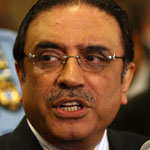
One of the disadvantages of being a hate figure in a very small country is that everybody knows who you are and where you live. David Oddsson (pictured left) said he spotted flaws in Iceland's financial system but no one listened to him. So when David Oddsson, the former governor of Iceland's central bank, found himself among those blamed for the island nation's spectacular financial meltdown last autumn, he had no shortage of angry people beating a path to his door. There were protests outside – and sometimes inside – his offices at the central bank, "noise bombs" chucked at his home at 3am, and death threats, necessitating a round-the-clock police bodyguard. Yet while most of the other financiers involved in the crash have fled the country, Mr. Oddsson remains in his modest villa in a Reykjavik suburb. What's more, these days he claims to have no problem wandering around town on his own. – UK Telegraph
Dominant Social Theme: Let the opinions blossom.
Free-Market Analysis: And of course they will. This doesn't make them right. In fact this is a great article because it is to our knowledge the only place where one can read about a real live central banker – the head of a central bank no less – actively defending his role in the financial meltdown. A rare read, indeed. The central banker is David Oddsson. The central bank is Iceland's. Iceland, of course is perhaps the greatest Western casualty of the current economic collapse, with its banks having shouldered debt far larger than the collective GDP of the entire nation of some 300,000 citizens. Thus, Iceland is a kind of petri dish in which we can see clearly how the economic crisis mutates. And Oddsson's explanations give us clearer understanding of how the monetary elite might defend itself against charges that central banks lie at the heart of the West's myriad of 20th and now 21st century monetary crises.
In our opinion of course, the free-market view, central banks always print too much money – and have even before the direct link between and gold and paper money was severed by President Richard Nixon in the early 1970s. Too much money tricks people into investing unwisely, and wasting resources. Eventually, there is a crash. It is the central bank mechanism itself that causes out-of-control business cycles and the kinds of deep financial crises that the world is now suffering through.
So how does Oddsson justify the role of central banking within the tiny, though tragic, economic ruin that is today's Iceland? The article (excerpted above) reveals the following:
When the country's banks collapsed under the weight of an unsustainable foreign debt last year, Mr. Oddsson was criticized for failing to spot the flaws in the very system he championed. Ah, but he did spot them, he says; it was just that nobody else listened. For example, proposals he repeatedly made to limit the amount that any individual or firm could own of a particular bank were ignored. "lt was my attitude that nobody should be able to own more than about 8%, because otherwise they could influence how the bank was run, especially in Iceland, where we only have relatively few banks," he said. "I advocated it in speeches and articles, and some of the people that are now blaming me for not following this were the same people that confronted it and said it was impossible." With hindsight, he concedes that it was also not a good idea to separate the central bank from Iceland's Financial Supervisory Authority, which, he says, left neither organization with any real teeth against an increasingly powerful financial sector. In that, though, he was simply following the fashion set by Gordon Brown in the UK. "In 1999 the fashion was to divide the roles in central banks, especially after Britain did it. I was prime minister at the time, so if you like you could be blaming me partly for that. But at the time nobody forecast what would happen later worldwide." Indeed, worrying about things was not fashionable at all, something he claims to have been told whenever he expressed a note of concern about possible storm clouds on the horizon. "We were told the central banks were being too pessimistic by the directors of the new banks, that they were old-fashioned and we should not be listened to. The government chose to listen to them, not us."
So there it is. Oddsson's perspective is that commercial bank ownership should have been split up, but that the responsibilities of the central bank should not have been split. Additionally, he was worried about what was happening and didn't insist hard enough that others should be worried. Perhaps he did not, he ventures, because others would criticize such talk as being too "pessimistic."

Does anyone who follows these sorts of issues closely believe that the regulatory solutions that Oddsson offers would have made a real difference? Iceland is in debt up to its ears, a nation ruined by paper money. But this situation is systemic. It has to do with the over-printing of money, not with the structure of the banking establishment or whether or not concern was expressed in advance of the calamity. Other central banks have had a vaguer go at explaining the current crisis. In an article in the Wall Street Journal, Alan Greenspan caused a minor stir by blaming current problems on Chinese prosperity, but only Oddsson, in this article, addresses the central banking issue forcefully and mounts a multi-pronged defense. In fact, it might explain why other central bankers are noticeably silent on the subject. Is this the best they can do? There isn't any there there, as Getrude Stein famously explained.
